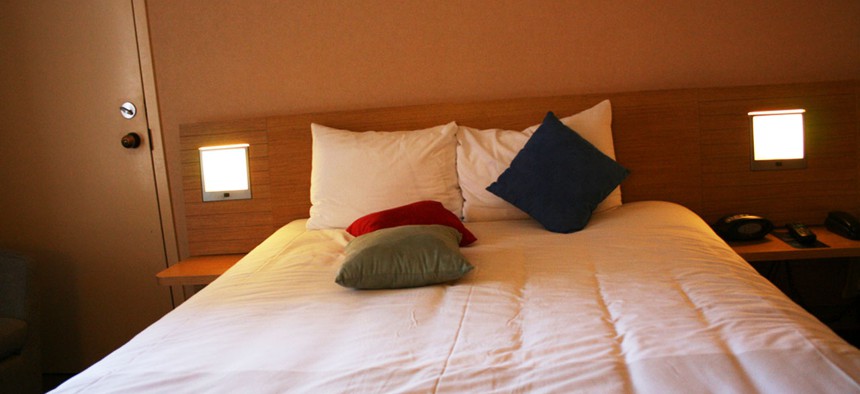
Flickr user Kevin Qiu
Researchers Say You Can Enjoy the Benefits of a Good Night's Sleep… Even if You’ve Barely Rested
If you’re constantly blaming your grumpiness on a bad night’s rest, it could be pessimism causing so many problems.
If you’re constantly blaming your bad mood or scattered mind on a bad night’s sleep, it may be time to rethink. Research suggests the amount of sleep you think you got can be more important than actual shut-eye.
A 2014 study on “placebo sleep” found that when people were told they’d had a good night’s sleep (using fake brainwave readings), they performed significantly better on cognitive tests than those who were told they’d slept poorly. The number of hours subjects had actually slept seemed to have little bearing on their test results.
Kristi Erdal, psychology professor at Colorado College and author of the study, says that that the same placebo effect that makes a sugar pill reduce headaches seem to also apply to tiredness. The main phenomenon behind this effect is known as “classical conditioning.” When two things have historically been paired together—i.e. taking a pill and losing your headache or, in this case, sleeping poorly and feeling mentally foggy—our mind starts to circumvent the actual mechanism in favor of simply producing the expected effect. It’s the auto-correct of brain functionality.
“If someone tells me that I’ve not slept well…I’ve not slept well in the past; I know what that feels like. I know I’m meant to be foggy, so here my brain goes being cognitively foggy,” Erdal says.
Of course, a scientific setting, with its lab coats and high-tech equipment, makes any assessment of sleep quality seem authoritative. Simply telling yourself you’ve had a good night’s sleep could be less convincing by comparison. But Shelby Harris, director of behavioral sleep medicine at Montefiore Medical Center in New York, says confidently telling yourself that you’ve slept well might be a successful way to feel more rested, at least in the short term.
“If you have to miss a night or two, then you can try and fake yourself some energy, but consistent quality sleep is better than trying to fake it,” Harris says.
Faking some sleep energy is more than just a cheap trick. Research shows that insomniacs are notoriously bad at estimating their sleep, and frequently under-report the hours of shut-eye they get each night.
Cognitive behavioral therapy (CBT) sleep therapists encourage patients to question preconceptions about the quality of their sleep and the effect any particular quantity of sleep will have on their hours awake. In other words, worrying that only two hours of sleep will make you irritable can easily become a self-fulfilling prophesy.
“If you go completely down the rabbit hole and say, ‘This is going to be a catastrophe,’ then yeah that’s going to be a problem,” says Erdal. “Our research suggests it’s a matter of how you stop yourself.”
(Image via Flickr user Kevin Qiu)
NEXT STORY: Finding Solitude in an Era of Perpetual Contact






